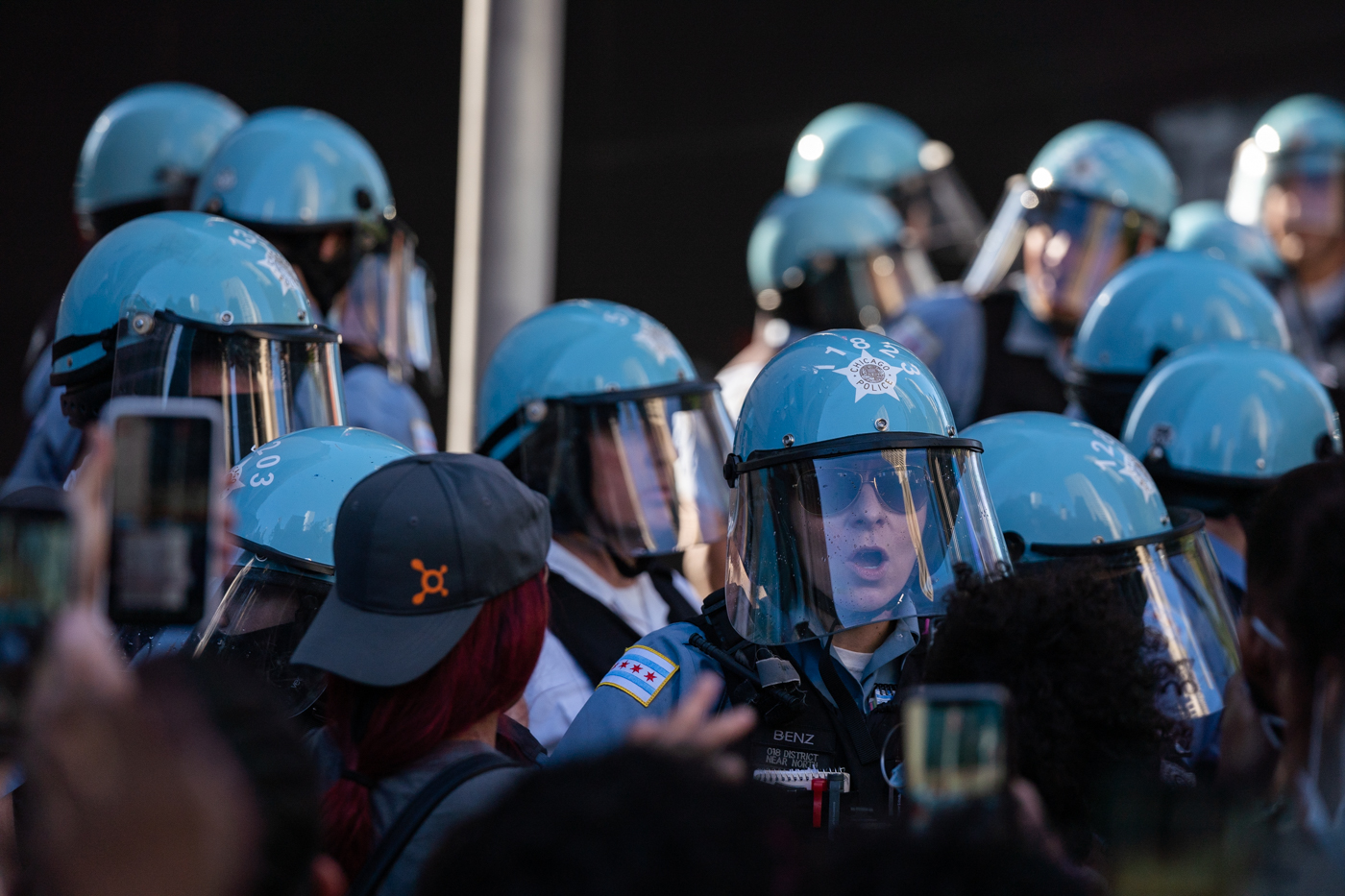The city will “vigorously defend” against a lawsuit filed Tuesday charging the Chicago Police Department with denying people detained at police stations access to phone calls and attorneys.
“Indeed, the complaint itself makes clear that the CPD continues to allow lawyers to consult with their clients,” according to a statement from Chicago law department spokesperson Kathy Fieweger.
That’s true, as far as it goes. But it leaves a lot out.
The lawsuit does include examples of attorneys who were allowed to consult with clients in custody — but only after long delays. That means people can be denied access to counsel during interrogation, which is the most crucial time. That can lead to coercive interrogations that result in wrongful convictions — the kind for which we are still paying hundreds of millions of dollars in legal settlements. It’s also been found to result in weeks of unnecessary jail time for individuals who are later released without a conviction.
But providing access to lawyers is certainly not a consistent practice. The lawsuit also cites depositions by numerous attorneys who say that during recent demonstrations, police refused to give them access to their clients, refused to determine whether their clients were in custody, and even denied that their clients were at a station house when it later turned out that in fact they were.
CPD also initially refused to allow attorneys to consult with clients over the phone after the coronavirus pandemic made in-person meetings dangerous, and then shifted to requiring individuals to sign a release waiving of their constitutional privacy rights if they wanted a phone consultation, according to the lawsuit. By contrast, prosecutors were given remote access to detainees and witnesses via videoconferencing technology, it alleges.
| RELATED:
|
Then there is the issue of access to phone calls. The lawsuit cites a survey by the Cook County Public Defender’s office of people in bond court in April and May that found that 23% reported they were never offered a phone call. For those who did get to make a call, there was an average wait of 4.2 hours.
The lawsuit argues that’s a violation of state law, which provides that “persons who are arrested shall have the right to communicate with an attorney of their choice and a member of their family by making a reasonable number of telephone calls or in any other reasonable manner. Such communication shall be permitted within a reasonable time (generally within the first hour) after arrival at the first place of custody.”
That seems pretty clear.
The lawsuit charges the city and the police department “maintain both official and de facto policies intended to prevent detainees from accessing legal representation.”
This is an old story. Four years ago the Police Accountability Task Force, chaired by then-Police Board President Lori Lightfoot, found that “CPD generally provides phone access only at the end of processing, after interrogation and charging, while arrestees wait in lockup to be released or transferred to county custody,” and reported that “in 2014, only 3 out of every 1,000 arrestees had an attorney at any point while in police custody.” According to the task force report, “When individuals in custody attempt to invoke their legal rights to counsel, they report facing hostility from police.”
For a police force facing major issues of trust and legitimacy, fixing that problem — protecting people’s rights and following the law — seemed like “low-hanging fruit” out of an ambitious reform agenda, Eliza Solowiej of First Defense Legal Aid told me at the time.
Lightfoot’s task force also called for an ordinance “mandating that arrestees be allowed to make phone calls to an attorney and/or family member(s) within one hour after arrest, allowing only for limited exceptions in exigent circumstances.” But when an ordinance doing just that was introduced last year, Lightfoot refused to back it, Solowiej said. She said the city’s position was that it was covered by a section of the federal consent decree — negotiated under former Mayor Rahm Emanuel — which commits CPD to giving arrestees access to a phone “as soon as practicable upon being taken into custody.” (When asked for comment on the ordinance, a spokesperson for the mayor’s office cited a recent department directive on processing people under CPD control.)
Of course, “as soon as practicable” can mean just about anything — and it leaves it up to the police to decide.
After the city took that position, advocates felt a lawsuit was their only option, Solowiej said.
She said she’s still hopeful that the Lightfoot administration will come through on the issue. But after four years of inaction, it may be up to a judge to require CPD to follow the law.
Update: This column was updated with comment from the mayor’s office issued post-publication.



